- Home
- Charlaine Harris
Games Creatures Play Page 4
Games Creatures Play Read online
Page 4
“Yes, in her way,” Manfred agreed. He allowed himself to feel the sharpness of the grief he’d experienced when she’d passed, far away from home in the cold mountains. “She knew human nature, that’s for sure. She wasn’t able to control her own,” he added slowly. “But she understood how people would react; at least, most often. I don’t think she ever met anyone like you.”
Sookie smiled and turned to look between the stands at the scoreboard. It indicated that the next game was into its second inning. The Red Ditch Gators were playing a team from Deux Arbres.
“That Deux Arbres team is supposed to be pretty good,” Sookie said, her eyes narrowed against the bright sun. There was a chorus of shouts from the bleachers. Manfred knew later they were yelling, “Heads up!” But what he heard in his head was his grandmother’s voice, saying, Look in the blue hereafter.
His hand shot out above Sookie’s head without his conscious decision.
For the first time in his life, Manfred Bernardo caught a softball.
He stood frozen in astonishment and delight and horror for a couple of seconds, time enough for Sookie to jump back, looking up at his hand (which stung like the very devil). She lowered her eyes to his face. Her own were full of astonishment and relief.
“Good catch,” called one of the Lady Falcons. It was curly-haired Georgia Allen. “Want me to take it back to the field?”
“Sure,” Manfred said. “Thanks.” He dropped the ball into her hand.
He had a sudden vision of what could have happened, the kind that did no one any good at all. He saw the ball hitting Sookie on top of her blond head. He saw her crumple to the ground, unconscious. He saw the ambulance ride, the bleed into the brain, the blackness. Then that vision evaporated, because that future was not hers anymore. He had changed it by showing up in Bon Temps, Louisiana, on a brisk bright day in early spring.
“So I reckon you won the game,” Sookie said quietly. And he understood that she had seen the vision in his head. “Look what you worked into a few hours. You can sure multitask.”
“It was my pleasure,” he said, trying for a courtliness he’d never aspired to achieve.
“And mine,” she said, nodding thoughtfully. “You call me, you hear? You’re being real good to help Quiana. But she may not suit your friend Marilyn.”
“At least she’ll be able to get help to understand how to live with this trait, from Marilyn,” Manfred said. “There aren’t that many of us.”
“And Ashley will get her scholarship. I wouldn’t have known it was the assistant coach affecting the pitches if you hadn’t spotted him.”
“We stopped him for this game.” Cheaters kept on cheating. They couldn’t resist.
“And my skull is in one piece.”
“That, most important of all.”
“So I owe you one,” she said, and Manfred could tell that this was a serious statement from her. If Sookie Stackhouse owed you one, she stood ready to help you any time, any place.
“No,” said Manfred, surprising himself. “I learned a lot today. I think we’re even.”
“Time for me to get back to work,” she said, glancing down at her watch. “You taking off?”
“Yeah, I’ll pick Quiana up and head out of town. We’ll go directly to the airport. She’ll call you when she gets to Marilyn’s, I’m sure.”
“You let me know when you get to your desert place, the one Quiana thought you should find,” she said.
“I will,” he promised. “It may not be for a while. I never thought of going to the desert before.” He laughed, and she laughed with him.
“Who’s to say that a prophecy is not just your inner wishes divined and spoken out loud?” she said. “After all, when you talked to your grandmother about the rule of three, the one she considered so silly, maybe she had another rule in mind—that your good deeds should always outnumber the bad.”
She gave him a little hug then, before she returned to the concession stand for another shift. He saw her begin to scoop up popcorn to fill the striped bags.
And Manfred, wondering if the good things he had done would ever outnumber the bad—or even the neutral—went to his car to pick up a girl he hardly knew to take her to begin the rest of her life with a stranger.
He figured that was what Xylda would have wanted. I don’t know what you think, Xylda, he thought. I figure I won.
HIDE AND SEEK
WILLIAM KENT KRUEGER
William Kent Krueger writes the New York Times bestselling Cork O’Connor mystery series, which is set in the north woods of Minnesota. His work has received a number of awards, including the Minnesota Book Award, the Loft-McKnight Fiction Award, the Anthony Award, the Barry Award, and the Friends of American Writers Prize. He does all his writing in a St. Paul coffee shop whose identity he prefers to keep secret. He has recently been playing a lot of hide-and-seek at night with his grandchildren, a difficult proposition for him since he’s terrified of the dark.
They’d been running forever. He’d kept Billy in front of him the whole way. When he saw that the kid was tiring, Cameron grabbed his shoulder from behind and said, “In there.”
He shoved Billy into a recess in a thicket, a place where he knew they couldn’t be seen. They were panting, both of them, chests heaving. “Stitch in my side,” Billy wheezed, and doubled over.
“Go on and sit down,” Cameron said. “We can rest here, but not too long. The game’ll begin any minute.”
Billy did as the older boy suggested and plopped onto the ground. Cameron sat beside him and stared up at the sky.
It was evening. It was always evening when the game began. The sky was a fading blue, a fragile color that filled Cameron with a deep sadness, and against that canvas, isolated clouds burned with the last light of the dying sun, as if they’d been painted with a brush whose bristles could hold and transfer fire.
“Will they find us?” Billy asked.
“Hush up,” Cameron told him quietly.
His small companion peered at the snarl of manzanita and cypress through which they’d run. Billy’s eyes were wide, huge whites with dark brown centers like little worm holes. He reached out and held on to Cameron’s leg as if he were afraid his friend might desert him. That was something Cameron wouldn’t do, not ever.
“I didn’t see Rusty,” Billy whispered.
“I told you, hush up.”
“Do you think he’s already been caught?”
“The seeking hasn’t even started yet. He’s just hiding, like us.”
“He’s bigger and slower. They’ll find him easier.”
Cameron hoped this was true. Maybe this night Rusty would be enough.
Billy looked up at him, his eagerness for the game evident in his big grin. “What if we win?” he whispered. “Will they keep their promise?”
Cameron wasn’t sure. Usually they did. But adults were strange, unreadable. Best not to raise Billy’s hope, he decided. So he simply said, “Be quiet.”
He listened carefully, cocking his ear in the direction of the big house, trying to hear if the seeking had begun yet. There was a breeze off the ocean, which was somewhere at his back, behind the thicket. He could smell the brine in the air and knew they would have to be careful. Beyond the thicket and for miles in either direction, the land dropped away in sheer cliff faces, and at the bottom lay great, jagged pieces of broken rock. Cameron had almost fallen over a cliff edge once when he was playing the game. He’d looked down and the rock pieces had seemed to him like sharp black teeth licked by the hungry tongue of a rising sea.
Billy said, “Roast beef. They promised me roast beef. I can practically taste it.” His eyes were closed and he was smiling.
Roast beef. That was for the little boys who survived the game. The bigger boys were promised something else, delicious in an entirely different way.
Although Cameron often t
hought of him as a little brother, Billy was really no kin. Except for Brother Daniel, Brother Ezekiel, and Sister Hepzibah, no one at the house was kin to anyone. Billy was new to the house and new to the game. He was such a sweet, naïve lunkhead that Cameron had taken an immediate liking to him, a dangerous thing at the house. But everyone needed to have someone to care about, didn’t they? That was what Cameron told himself anyway, when he tried to justify this pointless, useless caring.
“I hope they don’t find us,” Billy said. He quivered like an eager puppy.
Cameron hoped so, too, hoped desperately.
Billy had freckles. They spread across his face like a field of rust-colored flowers. His hair was red and wild. He had a tooth missing, permanently. He wouldn’t say how it happened, but Cameron suspected that, like all the boys at the house, Billy had been beaten and neglected before he’d been abandoned. And still, somehow, he’d managed not to lose the goofy grin or childish hopefulness that sometimes made Cameron want to cry.
A minute more, then they’d get up and move again, Cameron decided. The light was fading quickly, and they needed to be farther from the house before the seeking began.
“We should hide in the barn sometime,” Billy suggested.
“The barn’s always locked.”
“No, it isn’t. I saw Sister Hepzibah go in there this morning.”
“Don’t ever go in the barn,” Cameron told him harshly.
“Eddie said they’d never look there.”
“Eddie’s an idiot.”
“Eddie got ’dopted,” Billy said.
“No, he didn’t.”
“Did, too. That’s what Sister Hepzibah said. And he’s gone, isn’t he?”
“Nobody adopted Eddie. He just lost the game.” The minute he said it, Cameron was sorry. His responsibility was not only to teach Billy how to survive but to keep him in the dark about the game’s true nature.
“What do you mean?” Billy asked.
Cameron didn’t answer. He heard the baying of the dog and knew the seeking had begun. He leaped to his feet and grabbed a fistful of Billy’s dirty T-shirt and hauled him to his feet. “Come on,” he said. “We gotta run.”
He pushed Billy out of the thicket and back onto the narrow path that wove through the tangle of undergrowth and ragged manzanita and squat cypress, only one of many paths in the maze that surrounded the big house.
“Which way?” Billy panted when they came to a split.
“Left. Twenty yards, then stop,” Cameron said.
“Stop? Why?”
“Just do it.”
Billy did as he was instructed. When he halted, Cameron pulled up at his side. “Now, back the way we came.”
“What?”
“It’ll confuse the dog. At least for a while.”
Billy turned back but, instead of running, just stood there, as if listening. Then Cameron heard what Billy heard. Far to their right, in the direction of the big house, came a series of screams. They sounded like the cries of an exotic bird in a jungle movie. Cameron knew that wasn’t what they were. And a moment later, Billy figured it out, too.
“That was Rusty?” he said.
“Yeah,” Cameron said. “That was Rusty.”
“He sounded hurt.”
And now he sounded dead, Cameron thought as the stillness and quiet returned.
The hound had ceased its baying. Cameron hoped maybe the game was over for the night, that maybe one was enough. But a moment later, the dog, like a hellhound, began to howl again.
“Run!” Cameron said, and shoved Billy roughly toward the place where the path diverged.
This time they took the right fork. In the sky above them, stars had begun to appear, still faint but promising. Through the branches of the cypress, Cameron glimpsed a full moon rising above the barren hills to the east. Night, blessed night, wasn’t far away.
They turned a blind corner and Billy stopped suddenly. Cameron ran into him full tilt; they both went down in a tangle of arms and legs. Cameron quickly pulled himself together and stared ahead at what had drawn Billy up so abruptly. There in front of them, not fifty yards away, rose the big house. On the steps of the grand front porch stood Sister Hepzibah. She was turned away from them, looking at the wild hedge that walled the vast expanse of lawn to the south, which was the direction from which Rusty’s cries had come. Her long black hair was drawn up in a tight bun. She wore a shapeless black dress that reached to her ankles, but Cameron knew only too well the contours of the body her dress hid. Although he couldn’t see her face, he knew those beautiful features intimately, knew the evil her beauty masked.
“We went in a circle,” Billy said in a whisper, a quick burst between hard sucks of air.
“Keep down.” Cameron pressed Billy to the ground. “And we didn’t go in a circle. I know we didn’t.”
“Well, there it is.” Billy jabbed an accusing finger at the mansion, not bothering to hide his irritation at Cameron’s confusion.
There were no lights on in the great house. Once night fell, the house would remain unlit, except for the wing that Brother Daniel and Brother Ezekiel and Sister Hepzibah occupied. The doors of the upstairs dormitory would be locked and the boys left in the dark, reminded harshly, if they dared to complain, “We’re not made of money here. We all have to suffer a little for the good of the rest.”
“Come on,” Cameron whispered, and crawled away to where they couldn’t be seen. He got to his feet and Billy got up with him. He looked at the path they’d followed, still bewildered at how they’d ended up at the house. At any given time, a dozen boys were kept there, and he was the oldest. He’d won the game many times, knew the maze of paths well and the hiding places. Something was wrong, but he couldn’t put a finger on it. “Follow me,” he said, and turned and ran back the way they’d come.
They arrived at a place where a cypress much taller than the others stood beside the path. Cameron stopped, dug among the brush at the base of the tree, and brought out a length of thick hemp rope with a loop on one end. He threw the looped end over a long tree limb, threaded the length through the eye of the loop, and drew the rope tight around the branch. He held out the end of the dangling rope to Billy.
“Swing as far as you can that way.” He pointed toward a low wall of thorny bramble.
“Why?”
“So the dog will lose our scent. He won’t go through all that stickery brush.”
“What if I fall in?”
Cameron wanted to say that it would be better than getting caught, but he explained patiently, “You won’t fall in. Swing as far as you can and let go.”
“What about you?”
“I’ll swing next, and I’ll be right behind you.”
Billy did as he’d been instructed, and then Cameron followed, landing on another path on the far side of the bramble barrier. “Wait here,” he said.
He leaped and caught hold of a low branch of the cypress. He moved hand over hand to the trunk, climbed around to the other side, and removed the rope from the limb where it hung. He threw the rope into the cover of the bramble below, shinnied back the way he’d come, dropped from the tree, and landed beside Billy, who looked at him with wonder and admiration.
The dog bayed again, too close for Cameron’s comfort, and he said, “Let’s go.”
He led the way through the gathering dark. He was thinking that not much longer now and Sister Hepzibah would be calling, “Olly, olly, oxen free.” That would be the signal that the seeking had come to an end and Cameron and Billy had won the game that night.
But as he turned yet another blind corner, he stopped in shocked confusion. Because there, once again, stood the mansion, with Sister Hepzibah still on the porch. He swung out his arm and caught Billy before the kid could run past him and drew him back under the sheltering boughs of a cypress.
“Brother Ezekiel, Brother Daniel,” Sister Hepzibah called in her throaty voice, which always seemed to Cameron the siren call of sinful things. “Have you found our other darlings yet?”
“Still looking for the little bastards,” Brother Ezekiel called back from somewhere out of sight.
“One in the bag already and two who present a nice challenge. A good game tonight,” she said with pleasure. Then she spoke as if to the sky, “Good luck, Cameron dear. Remember what’s waiting for you.”
Cameron spun and ran, but turning another corner, he found himself again facing the house across the open yard. Billy drew up beside him but this time said nothing in recrimination. Cameron didn’t understand. He knew every path, every twist and turn, and yet he seemed to be running in circles. And another thing. The light had stopped changing, and the moon had ceased its climbing. Time seemed to be standing still. He felt the cold grip of panic rise and squeeze his chest. He turned and fled thoughtlessly, ran and ran until his lungs burned and he had to stop. Then he remembered Billy. The little kid was no longer with him.
Oh, Christ, he thought. He’d let Billy down. Just as bad, he’d let Sister Hepzibah and Brother Ezekiel and Brother Daniel down. Teaching the new kid how to play the game was his responsibility, a critical one. If they caught Billy, it wouldn’t matter if Cameron hid himself successfully. If they caught Billy, there would be no “Olly oxen free.” The hunting wouldn’t stop until they’d found Cameron, and nobody would survive the game that night.
He ran back, turned another blind corner, and discovered the kid, sitting on the ground, crying.
“What are you doing?” Cameron whispered harshly.
“I’m scared,” Billy said. He looked up and, in the sad blue of that awful evening light, Cameron saw that his cheeks were streaked with tears. “I don’t want to end up like Rusty.”
Cameron sat down beside him. He stared at the changeless sky and thought about the endless circles in which they seemed to be running. The thread of a familiar possibility dangled in front of him. He closed his eyes and took hold of that thread and followed it to a full understanding, which he always did at the end of that last night’s game. As always, this final understanding filled him with a stoic acceptance of his situation and, at the same time, put iron in his resolve to keep the little kid at his side from ever having to play the game again.

 Dead Ever After
Dead Ever After Grave Sight
Grave Sight Dead Until Dark
Dead Until Dark Real Murders
Real Murders Wolfsbane and Mistletoe
Wolfsbane and Mistletoe All the Little Liars
All the Little Liars Dead to the World
Dead to the World Club Dead
Club Dead Dead in the Family
Dead in the Family The Sookie Stackhouse Companion
The Sookie Stackhouse Companion All Together Dead
All Together Dead Dead as a Doornail
Dead as a Doornail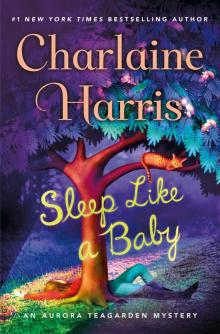 Sleep Like a Baby
Sleep Like a Baby Night Shift
Night Shift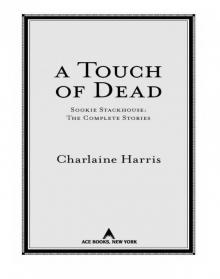 A Touch of Dead
A Touch of Dead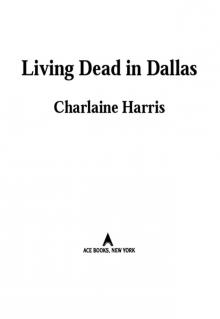 Living Dead in Dallas
Living Dead in Dallas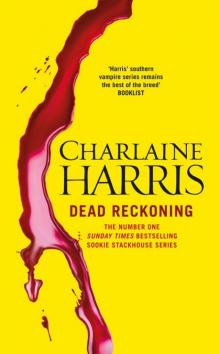 Dead Reckoning
Dead Reckoning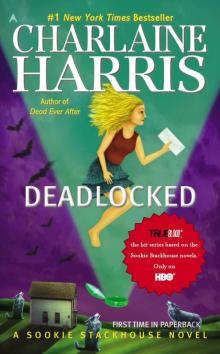 Deadlocked
Deadlocked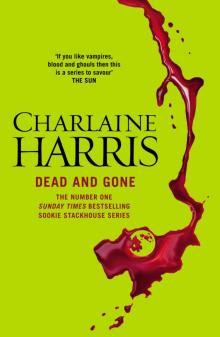 Dead and Gone
Dead and Gone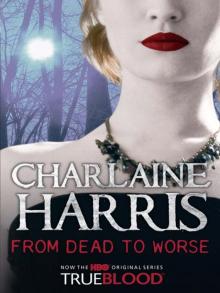 From Dead to Worse
From Dead to Worse Definitely Dead
Definitely Dead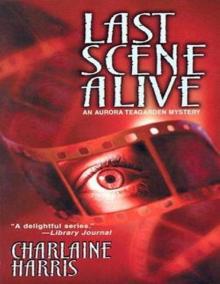 Last Scene Alive
Last Scene Alive Grave Secret
Grave Secret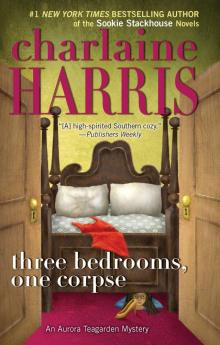 Three Bedrooms, One Corpse
Three Bedrooms, One Corpse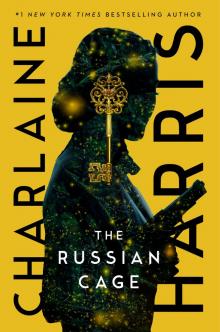 The Russian Cage
The Russian Cage Shakespeares Counselor
Shakespeares Counselor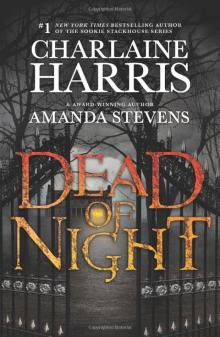 Dead of Night
Dead of Night Shakespeares Trollop
Shakespeares Trollop One Word Answer
One Word Answer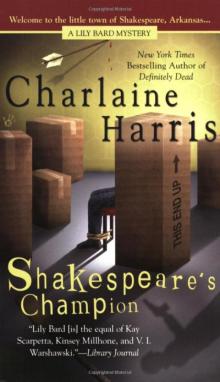 Shakespeares Champion
Shakespeares Champion Shakespeares Christmas
Shakespeares Christmas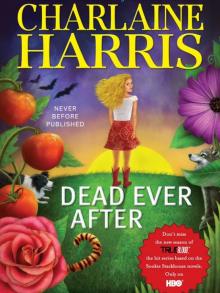 Shakespeares Landlord
Shakespeares Landlord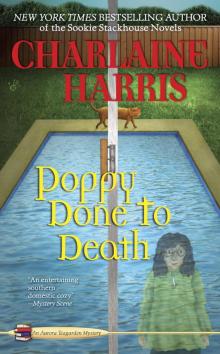 Poppy Done to Death
Poppy Done to Death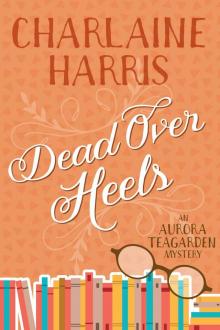 Dead Over Heels
Dead Over Heels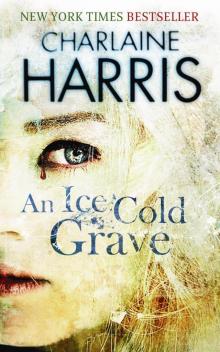 An Ice Cold Grave
An Ice Cold Grave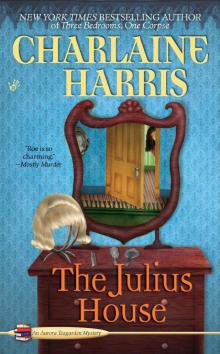 The Julius House
The Julius House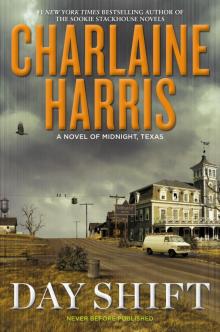 Day Shift
Day Shift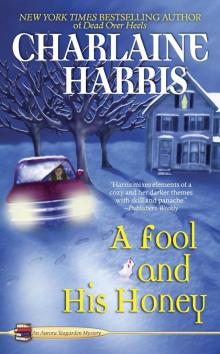 A Fool And His Honey
A Fool And His Honey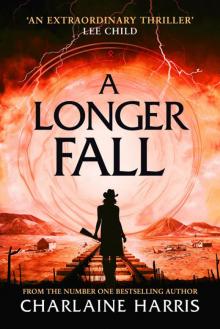 A Longer Fall (Gunnie Rose)
A Longer Fall (Gunnie Rose)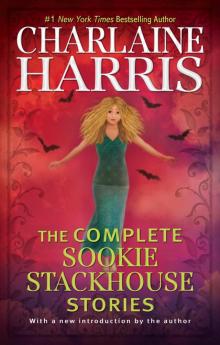 The Complete Sookie Stackhouse Stories (Sookie Stackhouse/True Blood)
The Complete Sookie Stackhouse Stories (Sookie Stackhouse/True Blood)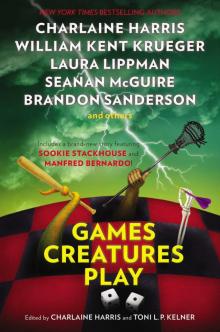 Games Creatures Play
Games Creatures Play Death's Excellent Vacation
Death's Excellent Vacation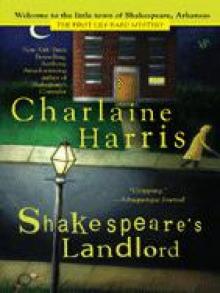 (LB2) Shakespeare's Landlord
(LB2) Shakespeare's Landlord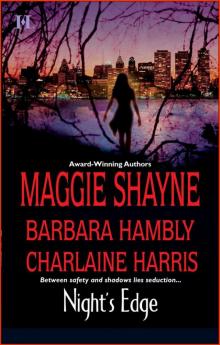 Dancers In The Dark - Night's Edge
Dancers In The Dark - Night's Edge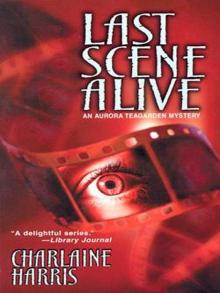 Last Scene Alive at-7
Last Scene Alive at-7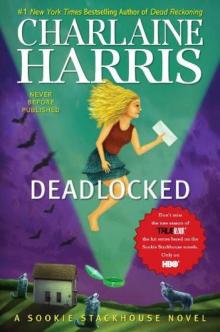 Deadlocked: A Sookie Stackhouse Novel
Deadlocked: A Sookie Stackhouse Novel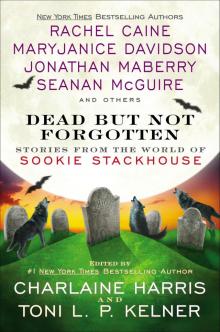 Dead But Not Forgotten
Dead But Not Forgotten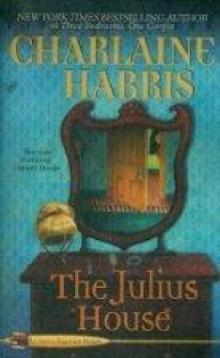 (4/10) The Julius House
(4/10) The Julius House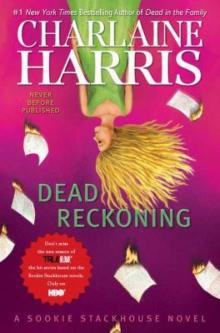 Dead Reckoning: A Sookie Stackhouse Novel
Dead Reckoning: A Sookie Stackhouse Novel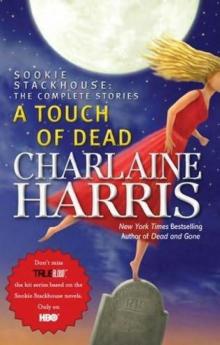 A Touch of Dead (sookie stackhouse (southern vampire))
A Touch of Dead (sookie stackhouse (southern vampire))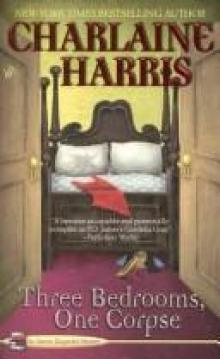 (3T)Three Bedrooms, One Corpse
(3T)Three Bedrooms, One Corpse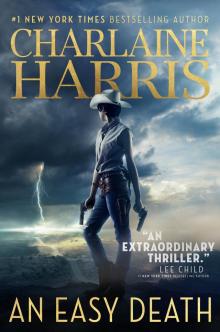 An Easy Death
An Easy Death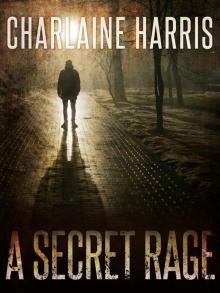 A Secret Rage
A Secret Rage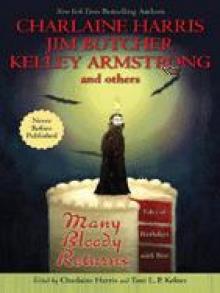 Many Bloody Returns
Many Bloody Returns![Harper Connelly [3] An Ice Cold Grave Read online](http://i1.bookreadfree.com/i/03/25/harper_connelly_3_an_ice_cold_grave_preview.jpg) Harper Connelly [3] An Ice Cold Grave
Harper Connelly [3] An Ice Cold Grave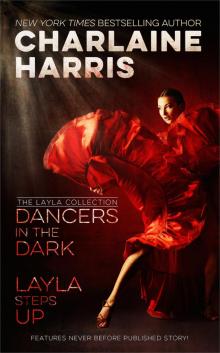 Dancers in the Dark and Layla Steps Up
Dancers in the Dark and Layla Steps Up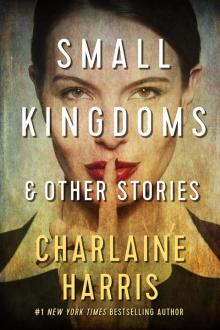 Small Kingdoms and Other Stories
Small Kingdoms and Other Stories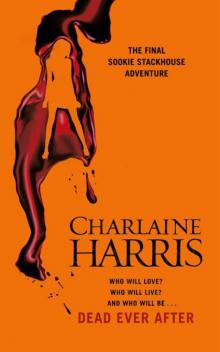 Dead Ever After: A Sookie Stackhouse Novel
Dead Ever After: A Sookie Stackhouse Novel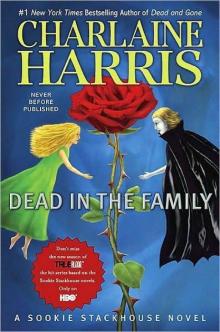 Dead in the Family ss-10
Dead in the Family ss-10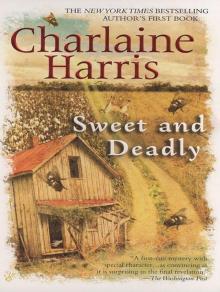 Sweet and Deadly aka Dead Dog
Sweet and Deadly aka Dead Dog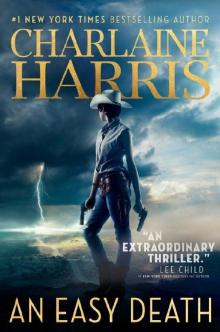 An Easy Death (Gunnie Rose #1)
An Easy Death (Gunnie Rose #1)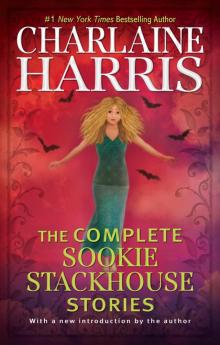 The Complete Sookie Stackhouse Stories
The Complete Sookie Stackhouse Stories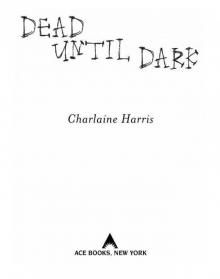 Sookie Stackhouse 8-copy Boxed Set
Sookie Stackhouse 8-copy Boxed Set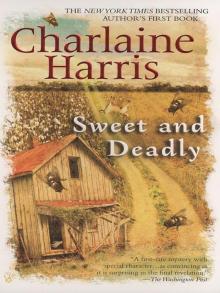 Sweet and Deadly
Sweet and Deadly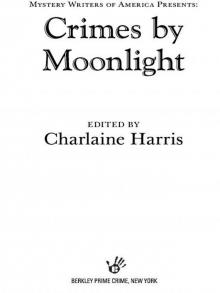 Crimes by Moonlight
Crimes by Moonlight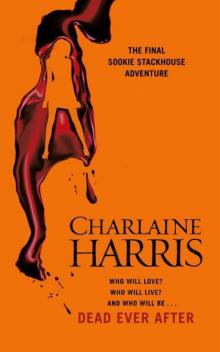 Dead Ever After: A True Blood Novel
Dead Ever After: A True Blood Novel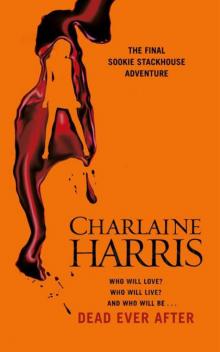 Dead Ever After ss-13
Dead Ever After ss-13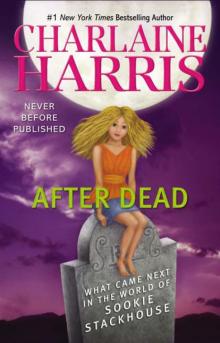 After Dead
After Dead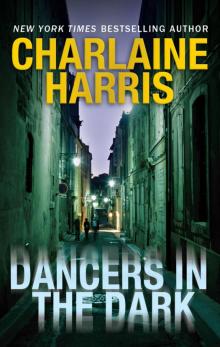 Dancers in the Dark
Dancers in the Dark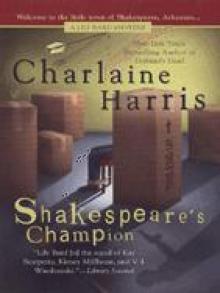 (LB1) Shakespeare's Champion
(LB1) Shakespeare's Champion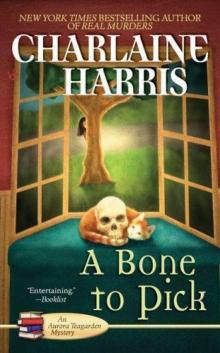 A Bone to Pick (Teagarden Mysteries,2)
A Bone to Pick (Teagarden Mysteries,2)